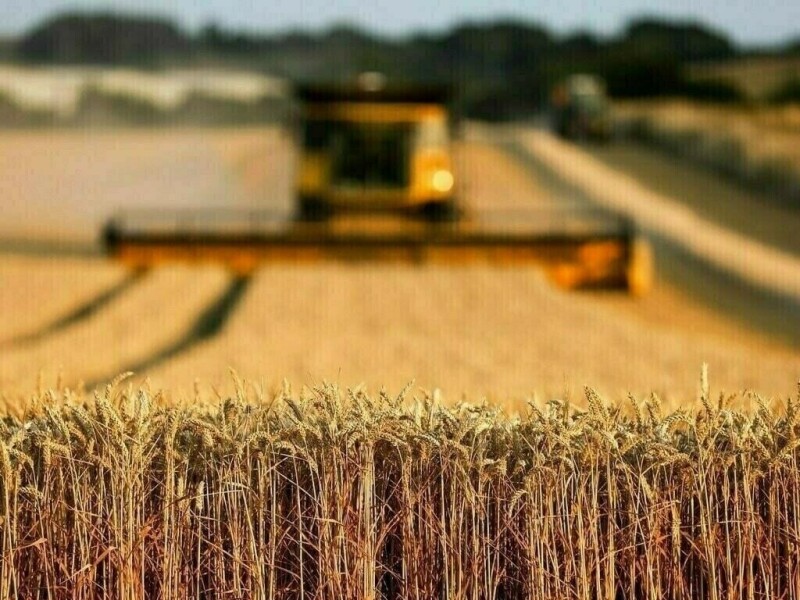Pakistan stands at the threshold of immense agricultural opportunity and innovation, said Jawwad Hasan, CEO & co-founder of Agrilift, a company which describes itself as a next-gen precision farming solution that helps farmers produce more in a sustainable and eco-friendly way.
He told Business Recorder that unfortunately, Pakistan faces nearly every agricultural challenge under the sun. But it is the ideal proving ground to build a robust solution—one that can have applications in Africa and even be adapted for the Americas.
“We sit at the intersection of massive agricultural potential and urgent necessity. Water scarcity, climate shocks, and fragmented land holdings are issues that many developing nations face, not just Pakistan.
We can export solutions worldwide if we can resolve them here using tech-enabled, scalable models,” he said.
Food security is at the centre of this opportunity, not only for Pakistan but for any country dealing with similar issues.
“Whether or not we establish ourselves as a global leader in agri-tech will depend on our capacity to innovate and secure our own food future,” he said.
This will require research and development (R&D) spending, innovation-friendly policies, and public-private partnerships that reduce the risk of experimentation.
Attracting top data scientists, engineers, and agronomists will also be crucial to success.
“Don’t shy away from “traditional” or “slow-moving” industries—they often hold the most untapped potential,” he said.
Institutionalizing data-driven decision-making
If he could change just one thing in Pakistan’s agricultural policy to support the agriculture ecosystem, it’s “institutionalizing data-driven decision-making at all agricultural levels,“ he said.
“Safeguarding farmer privacy, while developing national standards and infrastructure for the gathering, analyzing, and sharing of farm data. Everything else, including credit evaluation, climate adaptation, subsidy targeting, and resource allocation, improves with accurate, real-time data.”
“Without it, we’re operating in the dark and responding to issues after they become more serious. Pakistan doesn’t lack hardworking farmers or committed policymakers; it lacks a unified, intelligence-driven system to direct decisions.”
That is the cornerstone of food security, and it is here that policy can have a compounding, transformative impact, Hasan believes.
Partnership with FFC
“Our partnerships in Pakistan enabled the country’s largest agtech deployment of its kind with Fauji Fertilizer Company, allowing us to validate our technology at an unprecedented scale. In our first commercial crop cycle, we delivered $3 million plus in additional value for over 100 farmers, reducing yield gaps by up to 15%,” he said.
He explained that drones flew over 300,000 acres in more than 13,000 missions as the company’s agronomists mapped 40,000+ farm input events, enabling precise interventions.
Germination reports provided early, accurate plant counts; digital scouting helped detect weed hotspots, salinity issues, and irrigation gaps; while crop health monitoring gave early warnings regarding pests and diseases early for timely control.
Agrilift also uncovered a major blind spot: 80% of farmers had misestimated field sizes, wasting millions in inputs. One farmer overestimated by 15 acres, incurring Rs10 million in extra costs.
“These are real-world results, achieved in one of Pakistan’s most ambitious agri-tech rollouts,” said Hasan.
Speaking about Pakistan’s agriculture sector which faces persistent challenges from low yields to water stress and climate vulnerability, following food insecurity, he said there is a lot of potential to reshape the future of farming at scale.
Low yields stem from a variety of factors, including poor land preparation, delayed sowing, low-quality seed, pests, disease, and climate risks. Many farmers still rely on tradition, guesswork, and intuition—leaving wide margins for error.
Agrilift’s FarmLink tackles these by delivering insights. Built over three years with a problem-first, technology-agnostic approach, it addresses challenges across the full seed-to-harvest cycle through targeted “calls to action.”
Paired with on-ground agronomy support, this accelerates adoption, multiplies results, and builds farmer trust, Hasan said.
The next step is embedding these capabilities into Pakistan’s food system and adapting the model globally.
Unlike many agritech solutions that force-fit technology or stop at providing reports, Hasan said FarmLink was built with farmers, around real on-ground problems—bridging the last-mile gap by ensuring recommendations are implemented down to the plant level.
“We stand apart in three ways: problem-first design – built with farmers, using a tech-agnostic approach; depth of insights – combining seed, soil, weather, input logs, and crop data to act before problems appear; and above all trust – weekly agronomist visits turn tech into simple, actionable steps for lasting adoption,” he said.
Actionable insights
Agrilift is a deep-tech platform that transforms farm data into actionable insights—helping farmers make smarter decisions for higher yields and profitability. The platform is built on the 3R principle: give farmers the Right insight at the Right time so they can make the Right decision.
Agrilift’s vision is to engage with every plant on the farm, enabling data-backed decisions across every stage of the seed-to-harvest cycle. Unlike many agritech ventures, Agrilift pairs cutting-edge technology with dedicated field support, bridging the last-mile gap between data and on-farm implementation.
Under Hasan’s leadership, Agrilift has grown into an 85+ member team and has tested its technology on half a million acres across 9+ crops in 22 locations across Pakistan.


